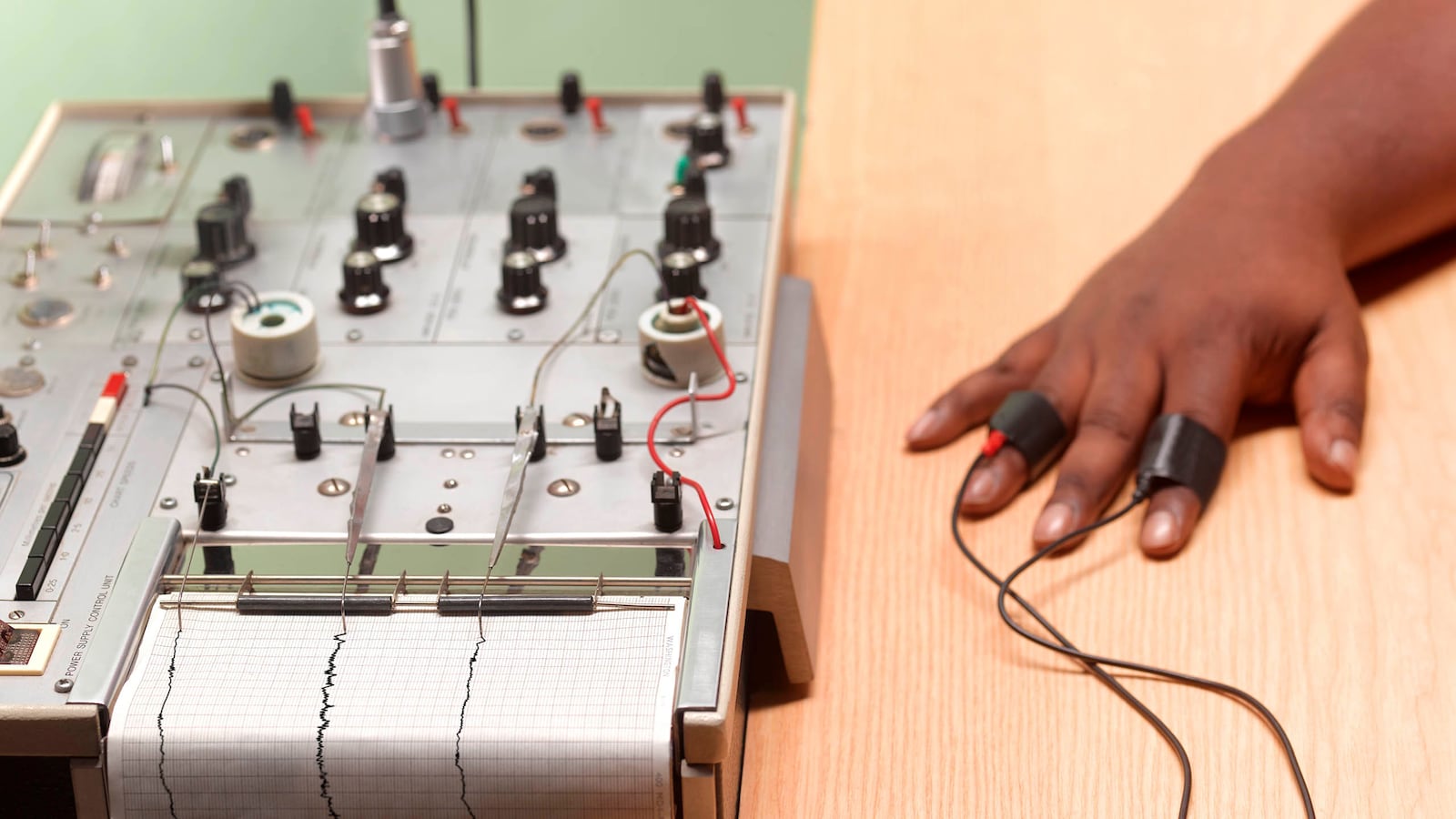The woman who accused Supreme Court nominee Brett Kavanaugh of trying to sexually assault her in the 1980s tried to blunt questions about her credibility by taking a polygraph exam—a test that was developed more than 80 years ago and is still widely used despite criticism that it’s worthless.
While law enforcement and national security agencies employ the so-called lie detector as a tool for investigations and employment checks, it is rarely used as evidence in court. And the 2005 federal Violence Against Women Act stipulated that any state that requires victims of a sexual offense to take an exam would be ineligible for certain grants.
Nevertheless, the polygraph has figured in several recent high-profile sexual misconduct cases. Porn star Stormy Daniels released one she took as a requirement for a magazine story about her alleged affair with President Trump. And former Senate candidate Roy Moore claimed he took one that showed allegations against him were false.
In Kavanaugh’s case, the Washington Post reported Sunday that his accuser, Christine Blasey Ford, sat for a test in early August on the advice of her attorney, who believed Ford would be attacked as a liar if she came forward.
“The results … concluded that Ford was being truthful when she said a statement summarizing her allegations was accurate,” the paper reported, adding that the polygraph was administered by a former FBI agent.
It’s worth noting that the polygraph wasn’t the only corroboration that Ford offered. The paper also reviewed notes from a therapist that indicated she said in 2012 that she was attacked in high school by boys who went on to become “highly respected and high-ranking members of society in Washington.”
But some are concerned that Ford’s willingness to take a polygraph will put pressure on other #MeToo victims to submit to an exam that has been blasted as pseudoscience.
“I know Debra [Katz, Christine Blasey-Ford’s attorney]. I think this is a great strategic move by her for purposes of relying on the Hollywood myth that polygraphs work that society believes,” attorney Mark Zaid, a polygraph critic who represents a number of clients in the intelligence community, said.
But, he added, “By using it as proof of truth in these types of cases, one can argue it’s going to set a higher standard than what we want.
“Because we don’t want alleged victims to have to be able to prove their cases by polygraphs. If an alleged victim has ‘failed’ their polygraph, it would mean absolutely nothing.” Zaid told The Daily Beast. “But it could create a public perception that perhaps they weren’t telling the truth and that is a very dangerous slippery slope.”
The polygraph—or “lie detector”—was invented 83 years ago by Leonard Keeler, who heralded the machine as “a signal victory for those who believe in scientific crime detection,” arguing the results were as damning as fingerprints at a crime scene.
The polygraph, according to the American Psychological Association, is literally a black box that is supposed to measure three indicators of autonomic arousal, the technical term for the nervous system’s reaction to stimuli: heart rate and blood pressure; respiration rate; and skin conductivity or perspiration, which is usually measured through electrodes on the subject’s fingerprints.
As the theory goes, when a person is attached to these devices and asked a question, the polygraph will figure out if a person is lying though heart rate increases, labored breathing or sweat.
Critics say the polygraph has two main flaws: It can make a nervous person look like they are lying, and it can be fooled by a good liar. A test-taker can use breathing techniques to relax and calm the nervous system. Or, as The Daily Beast has reported, clenching muscles or biting hard on the tongue are “cheats” that can ruin the results.
The polygraph’s ability to detect falsehoods with accuracy has been repeatedly questioned.
Lawrence Kobilinsky, the deputy chair in the department of sciences at John Jay College of Criminal Justice, told The Daily Beast that false positives and false negatives range between 10 or 15 percent.
“The exact number vary somewhat but it's in that ballpark,” he said.
“It's not a perfect test, but it's in common use,” he added.
Kobilinsky said that in his opinion, the circumstances of Ford’s polygraph work in her favor: She took the test in August, before the media attention; it was administered by a trained tester; and she has no publicly documented mental illness like sociopathy that might throw off the results.
Kobilinsky said he has no doubt that Kavanaugh’s supporters will attack the polygraph’s viability. "They're going to pooh-pooh that it's a terrible test and no good,” he said.
“It's not nonsense,” he added. “It's just not perfect.”
Emily Dworkin, a senior fellow at the University of Washington School of Medicine who is not an expert in polygraphs but has studied the psychology of trauma survivors, said pressure to prove their stories through polygraph can cause more stress for sexual violence survivors.
“It is common for survivors to have their credibility or honesty questioned when they disclose a sexual assault, even in less high-profile cases,” Dworkin said in an email to The Daily Beast.
“We know from the research that this suspicion is harmful in that it leads fewer survivors to report their assaults and has psychological consequences for those who do,” she continued. “The research on survivors' experiences disclosing sexual assault has been clear on the harm of doubting survivors' stories or asking them to prove their honesty: survivors who are disbelieved or whose credibility is questioned experience more symptoms of posttraumatic stress than survivors who are believed, even months later.”







